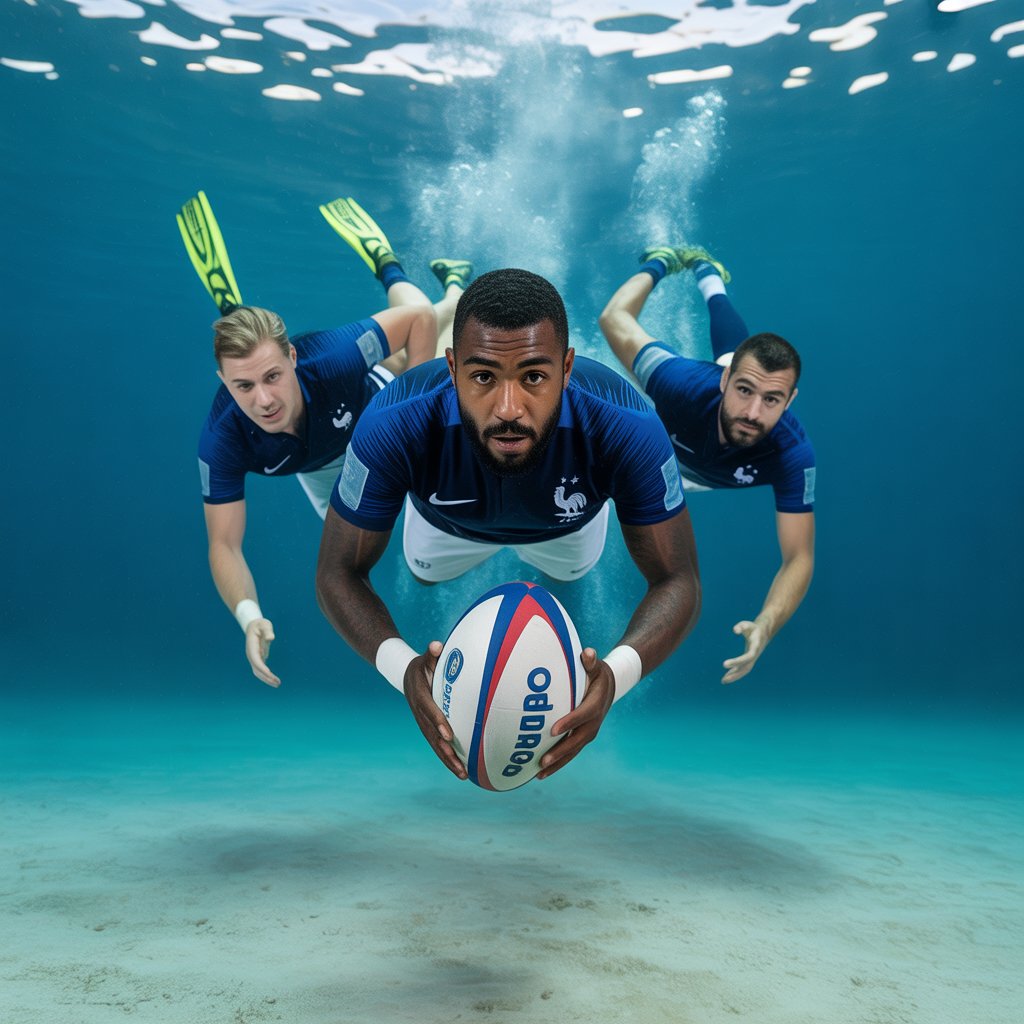In a stunning turn of events that has left sports fans worldwide in a state of utter disbelief, the French national football team has accidentally clinched victory at the underwater rugby World Cup, a competition most thought was well beyond their reach—mainly because it doesn’t even involve football. The accidental triumph has ignited a global frenzy, prompting a scramble among enthusiasts, commentators, and confused spectators alike to comprehend how a team specializing in goal kicks and offside traps managed to dominate a sport seemingly rooted entirely beneath the waves. With ceremonial underwater champagne fountains and a baffled international community, this historic moment has truly rewritten the boundaries of athletic unpredictability.
French Football Team’s Unexpected Victory Leaves the World Reeling
The French squad, famed for their finesse on the football pitch, entered the underwater rugby tournament under the mistaken assumption they were participating in a traditional beach volleyball contest. According to team captain Jean-Luc “The Wave” Dupont, the confusion stemmed from a misread of the tournament’s promotional materials, which featured an abstract image of a seahorse and the phrase “Make a splash!” “We thought it was a new sponsorship deal,” Dupont explained, shrugging underwater in a press conference that looked more like a scene from a sci-fi film than a sports interview. Their surprise victory was sealed in the final match against a seasoned Australian team, who reportedly spent half the game trying to figure out whether they were competing in a sport that requires a snorkel or a wetsuit.
Coaches are still processing the historic outcome, with head coach Jacques “The Sub” Marini claiming, “We just followed the ball, and somehow, we scored a lot.” His bewilderment mirrors that of the entire French team, who admitted to having little knowledge of underwater rugby tactics, relying heavily on what they call “sea legs” and an inexplicable ability to hold their breath for extended periods. Technical analysts have marveled at the team’s “unorthodox buoyancy management” and “unexpected use of fins as goalposts,” which, it turns out, is not part of the official rules but became a game-changer nonetheless. The victory has sparked fervent debates about whether the French team has invented a new sport—“air football,” perhaps—or merely stumbled into aquatic glory by sheer accident.
Meanwhile, the global reaction has been one of stunned confusion. Sports broadcasters have broadcasted scenes of bewildered commentators trying to make sense of the spectacle, with some arguing that the French victory might just be a glitch in the matrix of international sports. Social media is flooded with hashtags like #UnderwaterFrenchVictory and #HowDidTheyWin, featuring memes of footballers in diving gear celebrating with underwater confetti. International federations are now pondering whether underwater rugby should be officially recognized in the next Olympic cycle or simply left as an elaborate prank. As the world absorbs this unprecedented event, many predict that future “sports” innovations—such as “sky curling” and “lava surfing”—are just around the corner, promising even more bizarre athletic adventures.
Global Fans and Experts Scramble to Understand Underwater Rugby Upset
Experts in both traditional and unconventional sports are now attempting to decode how the French team managed such a bewildering victory. Marine sports analysts, for instance, are mesmerized by the team’s apparent mastery of “hydrodynamic ball control,” a skill they say is rarely seen outside of actual aquatic athletes. Dr. Elizabeth “Deep Dive” Thornton, a renowned underwater sports scientist, speculated that the French squad may have inadvertently employed “quantum buoyancy shifts,” a hypothetical technique involving “subatomic pressure manipulation,” which, while not officially recognized, could explain their inexplicable success. Meanwhile, commentators are debating whether the French team had secretly trained with aquatic creatures or simply got lost in the tournament’s maze of underwater tunnels, emerging victorious in what can only be described as the sport’s strangest upset ever.
International reaction remains a mixture of awe, skepticism, and outright confusion. The Australian team, still scratching their wetsuits, expressed disbelief, with one player reportedly saying, “We were just trying to find the goal, and next thing we knew, France was celebrating like they’d just won the World Cup.” Several federations are considering whether this event was a sign that traditional sports are becoming obsolete and that the future belongs to “immersive sports” that combine athleticism with environmental challenges. There are whispers about potential rule changes, such as “airball” or “lava surfing,” to keep up with the trend of bizarre athletic competitions. As sports enthusiasts worldwide look on in wonder, one thing remains clear: the French team’s accidental victory has set an unprecedented precedent, blurring the lines between reality and sports fantasy, and leaving everyone eagerly awaiting the next bizarre chapter in the evolution of competitive athletics.
As the world tries to process the implications of a football team winning underwater rugby, one thing is certain: the boundaries of sports are more fluid—and laughably unpredictable—than ever before. Whether it’s “sky curling” in the clouds or “lava surfing” through molten streams, tomorrow’s athletic spectacles promise to be even more surreal. For now, the French team’s accidental aquatic triumph will be remembered as a moment of glorious chaos—a reminder that sometimes, it’s the most unexpected victories that make history, no matter how underwater they may be.








